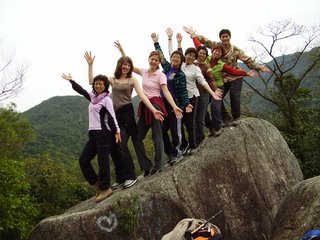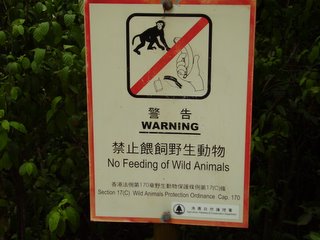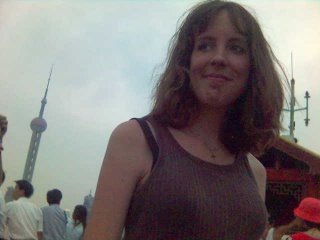Medan striden pågår kring Jyllandpostens publicering av Muhammed-teckningarna utspelas i Kina en alldeles egen strid om kulturella symboler och yttrandefrihet. Men i fallet Kina är det inte reaktionerna hos omvärlden, utan snarare hos det egna folket, som står på spel.
Enligt
Washington Post den 2 februari har den kinesiska staten nu förbjudit den amerikansk-producerade filmen "Memoirs of a Geisha", där en av Kinas nya stjärnor på skådespelarhimlen - Zhang Ziyi - spelar en japansk geisha. Hennes insats betraktas som ett svek mot Kina, som fortfarande bär på minnen från Japans grymhet under Andra Världskriget. Fortfarande väntar man på en officiell ursäkt. Och hatet verkar inte försvinna med tiden - snarare är det som starkast bland de yngre generationerna som ser Japan som sin stora fiende.
Filmen har redan vållat starka känslor genom den ström av piratkopior som redan forsat genom landet. Regimen är förstås rädd för att det ska urarta, som förra våren, då tusentals kineser samlades i våldsamma protester mot hur de ansåg att japanska skolböcker förringar Japans krigsdåd mot kineser under Andra Världskriget.
Trots vissa uppenbara olikheter är Danska Muhammedteckningar och kinesiska aktrisers snedsteg båda kulturella, mediala fenomen som fått oanade politiska konsekvenser. Onekligen står världens politiska ledare inför nya, utrikespolitiska utmaningar vars rötter de överhuvudtaget inte kan nå. Idag kan en tidningsillustratör uppfattas som talesman för en hel civilsation. En film kan övernatt skapa diplomatiska kriser mellan grannländer. Hur kontrollerar man från politiskt håll ett informationsflöde där en viskning automatiskt förvandlas till ett djungelvrål?
Vid en hastig anblick har ju Beijingregimen lyckats - protesterna har än så länge uteblivit. Geishan är bannlyst och allt är frid och fröjd. Fogh Rasmussen har däremot hamnat med en utrikespolitisk kris av aldrig tidigare skådat slag i knät. Världen kan uppenbarligen inte hantera yttrandefrihetens avigsidor.
Det ironiska är att det hat som man i Kina försöker tygla genom isolering har skapats genom - ja, just det, isolering. Vid en övergång från strikt statligt kontrollerad media till ett hav av piratkopierade filmer, tidningar och bloggar som regimen ännu inte hunnit censurera, är det inte så konstigt att det uppstår konflikter. Känslor som legat begravda i ett femtiotal år måste plötsligt konfronteras med den kultur som symboliserar Kinas förödmjukelse och fall.
På samma sätt beror inte de våldsamma reaktionerna i Syrien, Indonesien och andra länder som reagerat kraftigt på Muhammedteckningarna i första hand på för
mycket information - snarare för lite. Det råder kaos och förvirring i dessa länder - och det är få på gatorna som är medvetna om vad som faktiskt är roten till uppståndelsen. Politiska opportunister är inte sena med att utnyttja förvirringen till mobilisering i eget syfte.
Och så till sist Danmark. Jo visst, Muhammedteckningarna kunde lika gärna ha publicerats i Sverige eller Finland - vi sitter alla i samma båt. Men jag tror inte att det är en slump att yttrandefriheten utnyttjas till att uttrycka intolerans mot andra religioner i ett land där isolering gentemot influenser från (vissa delar av) omvärlden varit ett tydligt mål. Danmark påminner om att ett principiellt försvar av yttrandefriheten inte är tillräcklig. Det är vad vi fyller den med som är det avgörande - men också det svåra, eftersom vi inte kan lagstifta fram ord för ord vad vi ska säga. Men det betyder inte att vad vi använder yttrandefriheten till är irrelevant. Tvärtom - utan en diskussion om vad vi ska ha den till sjunker yttrandefrihetens värde ganska snabbt...












